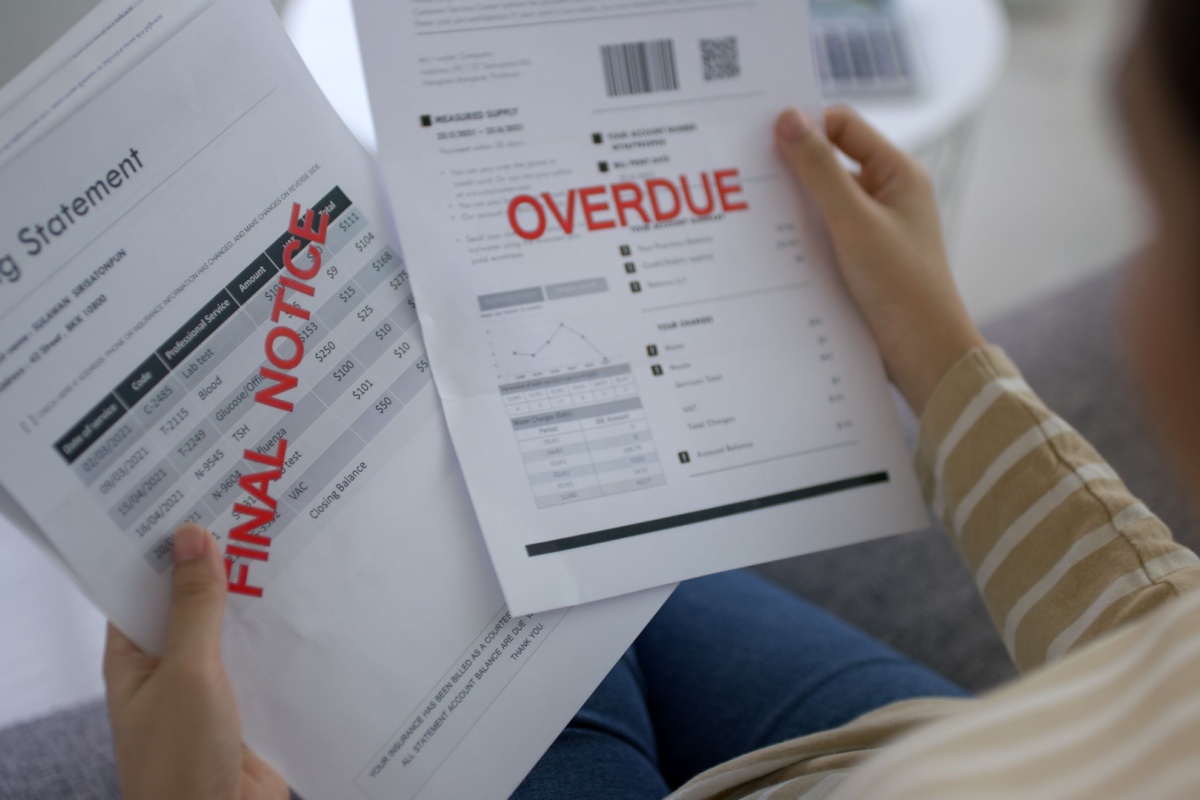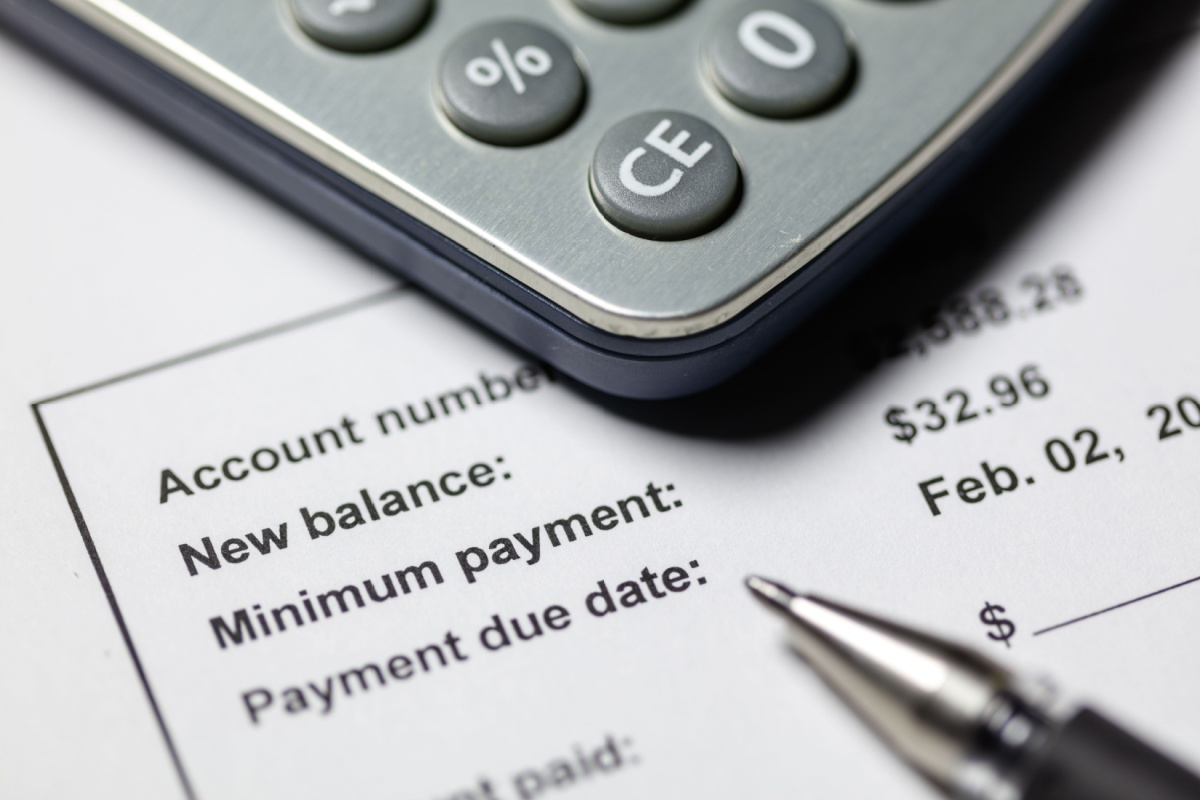Exploring What Increases Your Total Loan Balance
Navigating the complex world of loans can be daunting, especially when your total loan balance creeps up unexpectedly. Understanding what causes your total loan balance to increase can help you better manage your finances.
 This comprehensive guide will explore the factors contributing to your loan balance's growth and how to mitigate this increase, ensuring you remain in control of your financial future. We will discuss interest rates, forbearance and deferment, and other variables affecting your loan balance.
This comprehensive guide will explore the factors contributing to your loan balance's growth and how to mitigate this increase, ensuring you remain in control of your financial future. We will discuss interest rates, forbearance and deferment, and other variables affecting your loan balance.
Understanding Your Loan Balance
What is a loan balance? A loan balance is the total amount you owe to a lender. This figure represents the original amount of money borrowed (the principal), plus any accrued interest and fees minus any payments you have made towards the loan. It's the outstanding amount that needs to be repaid to clear the debt entirely.
The loan balance can fluctuate over time for several reasons. Payments you make decrease the balance, while accrued interest and any additional fees or charges can increase it. Understanding your loan balance can help you manage your debts effectively, as it lets you keep track of how much you still owe and gauge your progress toward paying off the loan.
The 6 Key Factors That Increase Your Total Loan Balance
Several factors can contribute to the growth of your total loan balance. Here, we focus on six central elements that affect how much you may owe. You can implement strategies to control and lessen their effects by understanding these:
Interest Rates
Interest rates determine the cost of borrowing money. They represent the percentage of the principal amount lenders charge as interest, serving not only as compensation for the risk they undertake when lending cash but also as a way to make a profit.
Fixed Interest Rates
With fixed interest rates, the rate you agree to when you first take out the loan remains constant over the entire loan term. This consistency offers a significant advantage: predictability. Knowing exactly how much you'll need to pay each month simplifies budgeting, as your loan payments won’t change over time, regardless of fluctuations in the market interest rates. This stability can be exceptionally comforting for long-term loans, such as mortgages, where the predictability of payments is a crucial consideration for borrowers.
Variable Interest Rates
Variable interest rates, on the other hand, are subject to change based on underlying market conditions. While variable rates offer lower initial costs compared to fixed rates, they introduce an element of unpredictability. If interest rates rise, so do your monthly payments and, consequently, the total cost of your loan. This variability can be a double-edged sword: borrowers might save money if rates decrease, but they could also pay significantly more if rates climb.
Late Fees and Penalties
Failing to make payments on time can result in late fees and penalties, which are added to your loan balance. These additional charges serve as a deterrent against delayed payments and compensate the lender for the inconvenience and increased risk associated with late payments. The specifics of these fees—how much they are, when they're applied, and how they're calculated—can vary widely depending on the lender and the terms of your loan agreement.
 Over time, if late payments become a habit or multiple payments are missed, these fees can accumulate, significantly increasing your loan balance. These additional charges increase your debt, but they can also extend the loan term or increase the size of future payments, making it harder to pay off the loan.
Over time, if late payments become a habit or multiple payments are missed, these fees can accumulate, significantly increasing your loan balance. These additional charges increase your debt, but they can also extend the loan term or increase the size of future payments, making it harder to pay off the loan.
Interest capitalization is a process that can significantly affect the total cost of your loan over time. It occurs when accrued, unpaid interest is added to your loan's principal balance. Everyday situations leading to interest capitalization include periods of forbearance or deferment—when loan payments are temporarily paused—and following missed payments.
Interest Capitalization
Interest capitalization occurs when unpaid interest is added to your principal balance. This can happen during periods of forbearance, deferment, or after missing payments. The capitalized interest increases your overall balance and the amount of future interest you will owe.
Once the unpaid interest is capitalized, it becomes part of the principal balance. This means that future interest charges will be calculated on a higher principal amount, leading to an increase in both the total loan balance and the amount of interest you will owe over the life of the loan. This can create a compounding effect, where the borrower pays interest on top of interest, making the loan more expensive in the long run.
What increases your total student loan balance? Interest capitalization is particularly relevant for student loans, where borrowers may not be required to make payments while they're in school or during grace periods. However, unless the government subsidizes these loans, interest may continue to accrue during these times. If this accumulated interest is not paid off before capitalizing, the total amount owed can significantly increase once repayment begins.
Forbearance and Deferment
Forbearance and deferment allow borrowers to pause payments temporarily. However, interest may continue to accrue during these periods, leading to an increased balance once payments resume.
Forbearance allows you to pause or reduce your monthly loan payments for a period. It's often granted at the lender's discretion and is typically used when the borrower faces unexpected expenses such as unemployment, medical emergencies, or other temporary setbacks. While forbearance can provide much-needed breathing room, interest usually continues to accrue on your loan during this period. This accrued interest can significantly increase your loan balance over time if the forbearance period is extended.
Deferment, like forbearance, is a temporary suspension of loan payments. It's often available under more specific conditions, such as school enrollment, graduate fellowship program participation, or active military service. For certain types of loans, particularly federal student loans, the government may pay the interest that accrues during deferment periods for subsidized loans. However, interest will continue to accrue for unsubsidized loans and most private loans, which can add to the loan's total cost.
Minimum Payments and Amortization
You may wonder, “Why is my principal balance increasing?” Making only the minimum payments can extend the life of your loan and increase the total interest paid. Amortization schedules dictate how payments are split between interest and principal, with earlier payments primarily covering interest.
 The minimum payment is the lowest amount you can pay on your loan or credit card balance to remain in good standing with your lender. While making minimum payments ensures that you avoid late fees and penalties, it also means that you might be extending the life of your loan considerably. This extension happens because minimum payments are often set at a level that covers more interest than principal, especially in the early stages of repayment.
The minimum payment is the lowest amount you can pay on your loan or credit card balance to remain in good standing with your lender. While making minimum payments ensures that you avoid late fees and penalties, it also means that you might be extending the life of your loan considerably. This extension happens because minimum payments are often set at a level that covers more interest than principal, especially in the early stages of repayment.
Amortization refers to spreading loan payments over time according to a predetermined schedule. This schedule dictates how each payment is divided between the principal amount and interest. In the early years of a typical amortized loan, such as a mortgage or an auto loan, a more significant portion of each payment goes towards interest rather than reducing the principal. As time passes, the balance shifts, with more of each payment going towards the principal.
Additional Advances and Loan Modifications
In some cases, borrowers may seek additional advances on their loans or opt for loan modifications to ease short-term financial pressures. While these options can provide immediate relief, they also impact the loan's overall cost and term.
Additional loan advances mean borrowing more money on top of your current loan balance. This can be appealing in a financial pinch, but it increases your total debt and, typically, your loan term. Depending on the loan's terms and how the additional funds are amortized, additional advances can also lead to higher monthly payments or more interest paid over the life of the loan.
Loan modifications alter the original terms of your loan, including extending the repayment period, changing the interest rate, or adjusting the monthly payment amount. While modifications can make payments more manageable in the short term, they can also result in a higher total loan cost. Extending the loan term, for example, may lower your monthly payments but also means paying interest for a longer period, increasing the overall amount paid.
How to Mitigate the Increase in Your Loan Balance?
How can you reduce your total loan cost? Here are some strategies:
- Understand the Terms of Your Loan: Knowing whether your loan has a fixed or variable interest rate, if there are any fees for late payments, or if interest capitalizes can help you manage your loan more effectively.
- Make Payments on Time: This might seem obvious, but consistently making payments on time is one of the most straightforward ways to keep your loan balance from increasing due to late fees or additional interest.
- Pay More Than the Minimum: Paying more than the minimum required payment can help reduce the principal faster, thereby reducing the amount of interest that accrues over the life of the loan.
- Consider Refinancing: If you have high-interest loans, refinancing to a loan with a lower interest rate can reduce your total loan cost and help prevent your balance from increasing.
- Explore Repayment Assistance Programs: For student loans, programs based on your income or career choice may offer ways to reduce your total loan cost or provide forgiveness after a certain period. If you need money desperately, you can look into other ways to earn cash quickly.
Understanding why your loan balance may increase and taking proactive steps to manage and reduce your total loan cost can lead to significant savings over time. Whether it's a student loan, auto loan, or any other type of debt, being informed and strategic about your repayments is critical to financial wellness.
Final Takeaways
Understanding what increases your total loan balance is the first step toward taking control of your debt. Making more than the minimum payments can significantly reduce the interest accrued and the loan's term.
Additionally, while additional advances and loan modifications might offer immediate relief, they can lead to a higher overall loan cost. Staying informed, exploring all available debt management options, such as refinancing or consolidation, and proactively managing your loans are essential steps toward reducing your debt and securing your financial future.





